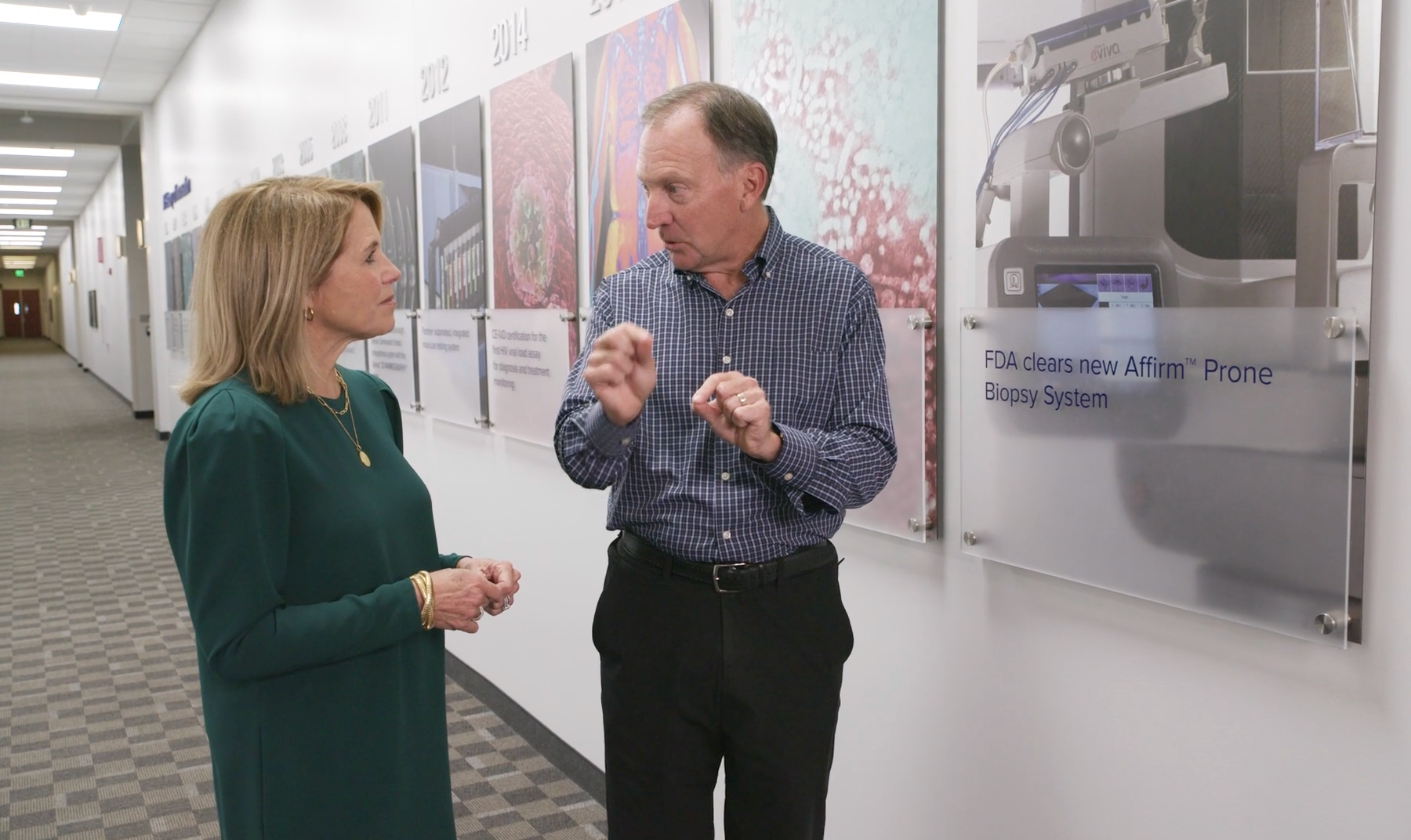“They say tough times test character. I say tough times reveal character.” That’s how Steve MacMillan, CEO of medical technology and women's health company Hologic, views the months leading up to the development of Hologic's first test for Covid-19. He recently sat down with Katie to discuss the company’s response to the pandemic, the state of women’s health worldwide, and Hologic’s commitment to these issues.
If you’ve been paying close attention to news coverage on developments in the fight against Covid-19, you might already be familiar with Hologic. When Covid-19 first began to spread, Hologic, a company primarily focused on women’s health, shifted many of its resources toward developing a fast and accurate way to detect the virus SARS-CoV-2. Within 24 hours of developing a molecular test, it received emergency authorization from the FDA. By analyzing samples using its fully automated Panther devices, which can each process more than 1,000 tests a day, Hologic almost single-handedly brought the time it takes a patient to get the results of a molecular test down to just 24 to 48 hours.
MacMillan’s leadership during the pandemic has given Hologic increased visibility and name recognition on a global scale, and he plans to use this platform to remind the world of Hologic’s primary goal: improving the health of women globally. “The bigger we get,” says MacMillan, “the better we are for women’s health.”
The past two years have been extraordinary for Hologic. In addition to its work in Covid-19 testing, the company conducted a sweeping new survey of women’s health across the globe. In partnership with Gallup, Hologic conducted 120,000 interviews in 116 countries in 140 languages to understand the state of women’s health. The results, detailed in the Hologic Global Women’s Health Index, were shocking: They revealed just how poorly women are faring on a global scale. The Index found that five dimensions of women’s health will determine 80 percent of her life expectancy, no matter where she lives. Hologic’s findings have sparked important discussions with world leaders about what they can do to improve the state of women’s health in their countries.
MacMillan has been frustrated in the past with the lack of attention given to women’s health issues: “When you’ve got a bunch of men making decisions, it just always feels to me like when these are women’s health issues, things just don’t move at the same pace.” Now that Hologic has provided hard numbers and evidence on the state of women’s health, it’s hard to ignore how much work needs to be done. Looking forward, MacMillan believes Hologic's Index will make a bigger impact for women's well-being than even the company's decades of leadership against breast cancer and cervical cancer: “Because of our Covid response, we’re so much better known at all the highest levels of government around the world — and therefore we’re able to be talking about women’s health in ways that [these countries have] never engaged with before.”









